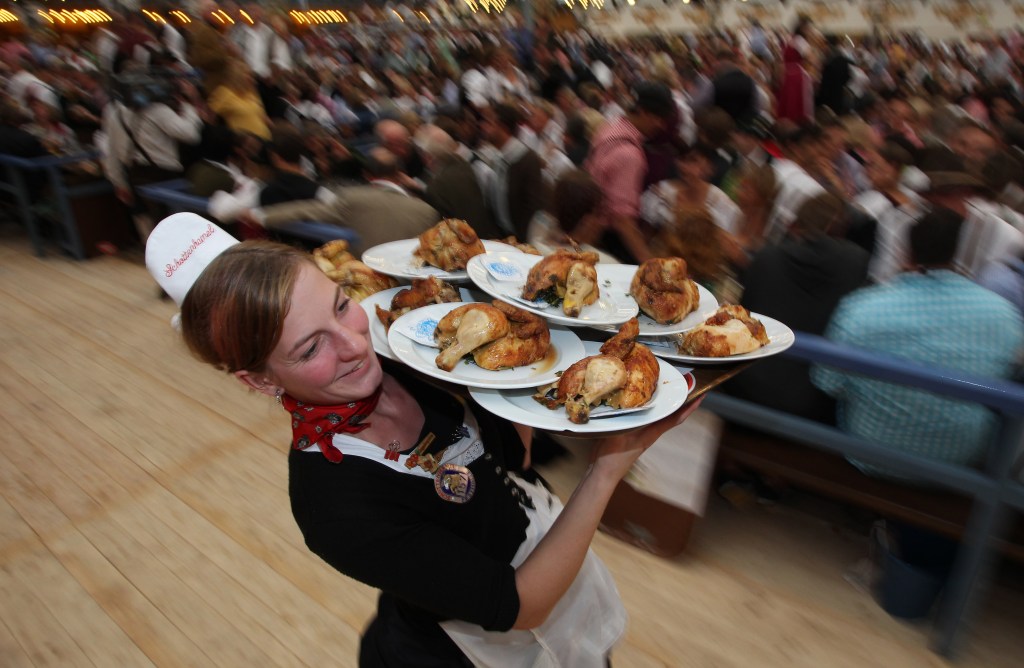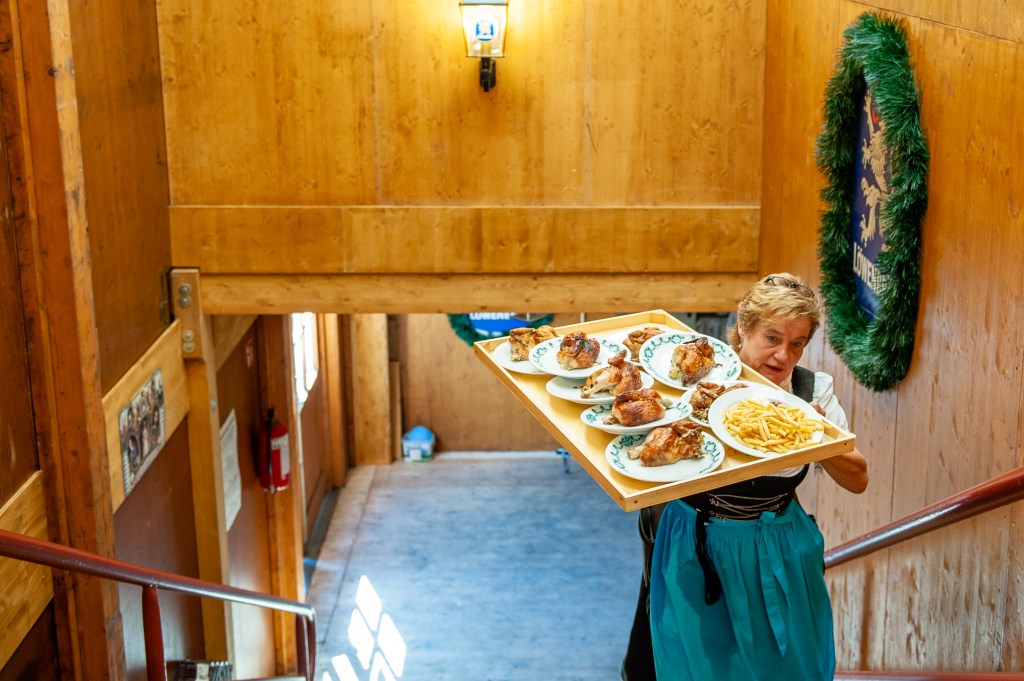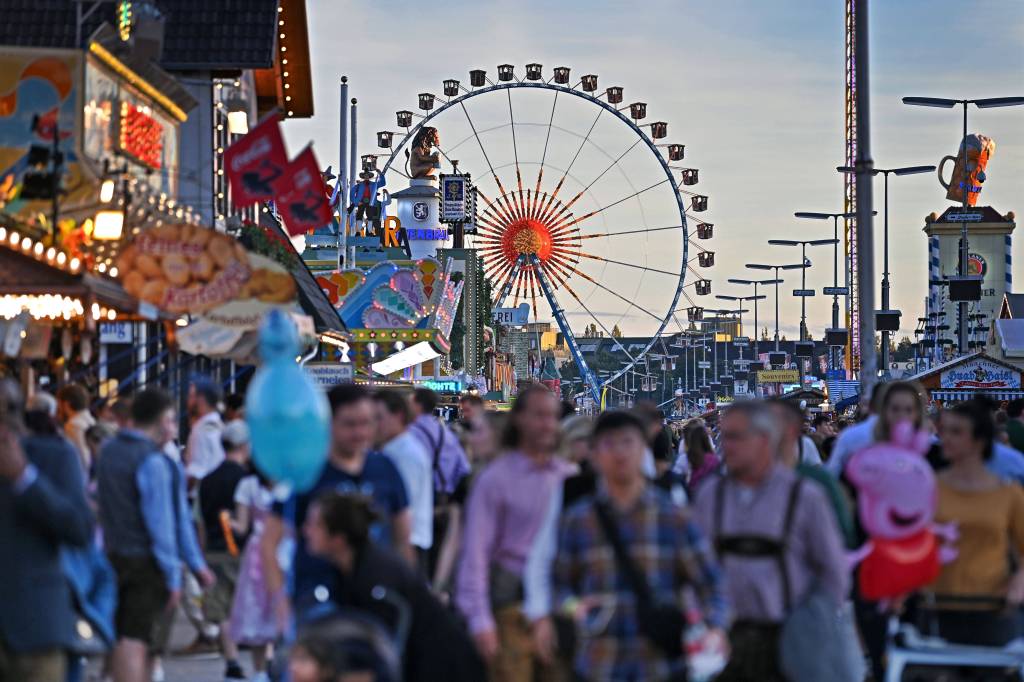Oktoberfest pricey chicken divides beer-drinking revelers
Oktoberbest has become the latest tradition to prove divisive — as one beer peddler is serving up pricey organic chickens that have ruffled some feathers.
The Paulaner festival tent’s swap to the all-organic hens has revelers divided between those who hope to see a greater emphasis on sustainability at the annual German beer festival and others who want to preserve traditions — with the latter complaining of what they’ve dubbed a “Woke Wiesn,” the Wall Street Journal reported.
“It’s an experiment,” Arabella Schörghuber, who runs the Paulaner Festzelt, told the paper. “It’s more expensive, but the quality is higher. We want to make sure that the animal has a good life. We’ll see what happens.”
At least one of the tens of thousands of people who attended the celebration in Munich Saturday was turned off by the change.
Andrea Koerner, 56, usually orders the chicken when she attends Oktoberfest every year but the higher price tag — at 20.50 euros or $22 USD, roughly 50% more than the nonorganic option — made her break with tradition.
“We don’t know the taste because it costs too much to try,” Koerner told the Journal.

Instead, she snacked on pretzels and a cheese spread.
Other festival-goers told the publication that the chicken’s flavor was worth the inflated cost.
The change was prompted by a group of activists who demanded the Bavarian feast promote organic farms.
The group held a graphic demonstration in the city’s central square featuring fake bloody chicken heads to protest industrial slaughter, according to the Journal.
Organic chickens — the most popular food at the 18-day feast — were also much more easily attenable than beer made from organic hops and barley. Attendees typically drink around seven million liters of beer each year.

Officials said the switch-up also gets the massive event on its way to meeting the city’s goal of becoming climate-neutral by 2035 and helps an association of the 15 largest festival tents move towards their own promise to become climate-neutral years early — by 2028.
But some say the move could result in negative advertising for Oktoberfest.
“It must stay a traditional volksfest, because otherwise it wouldn’t be attractive,” Clemens Baumgärtner, an official who oversees the festival and a member of the conservative CSU, told the Journal. “If you talk about being woke on the other 340 days a year, nobody really listens to that. But if you talk about being woke on the Oktoberfest, you get lots of media attention.”
Still, others said that change is a normal part of the course for the 213-year-old festival.
“Wiesn will have to change as it has changed always over the decades,” said Lukas Bulka, who started working at an Oktoberfest tent as a teenager and now runs the city’s Beer and Oktoberfest Museum, according to the outlet.
The feast already uses renewable energy and has banned single-use dishes and utensils, he said.
But the production and transportation of festival beer is a larger polluter. In 2019, it created 66 metric tons of carbon dioxide, according to one of Oktoberfest’s official breweries.

While the chicken is on the table for updates, a Munich Food Council board member said it’s unlikely the brews will change anytime soon in order to be more sustainable.
“That’s not an easy point in Munich,” Susanne Kiehl said. “That’s almost like religion.”
Read the full article Here


